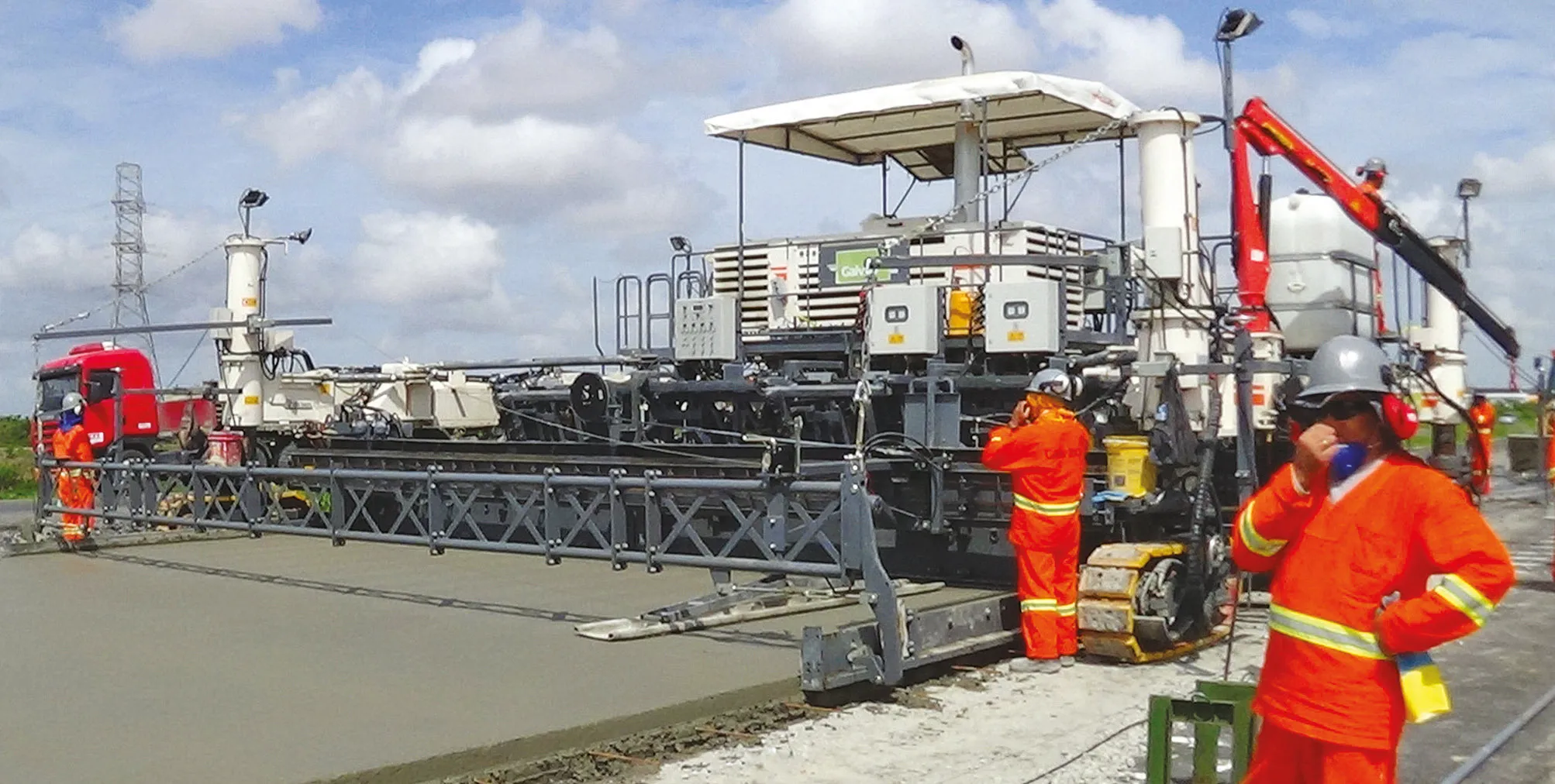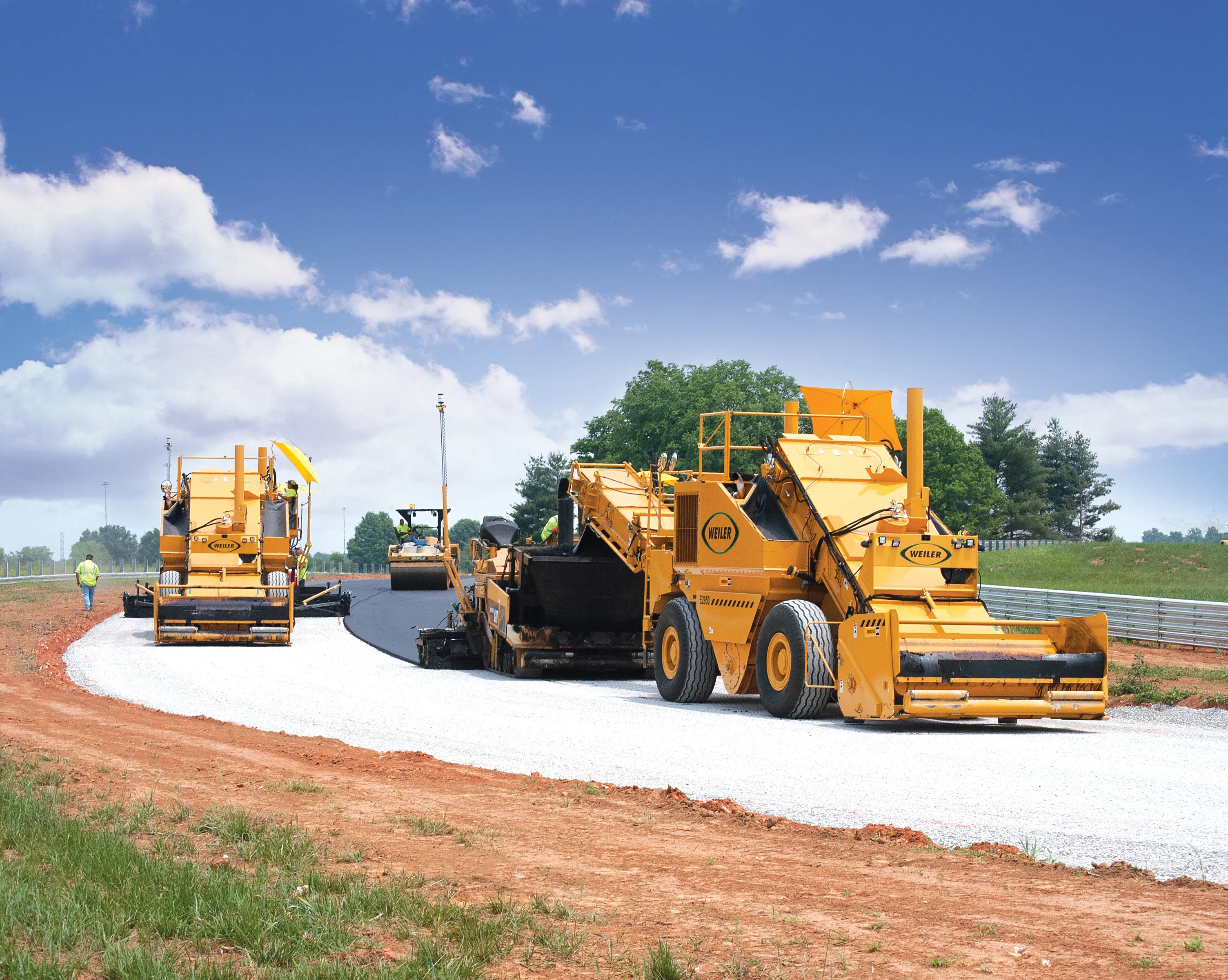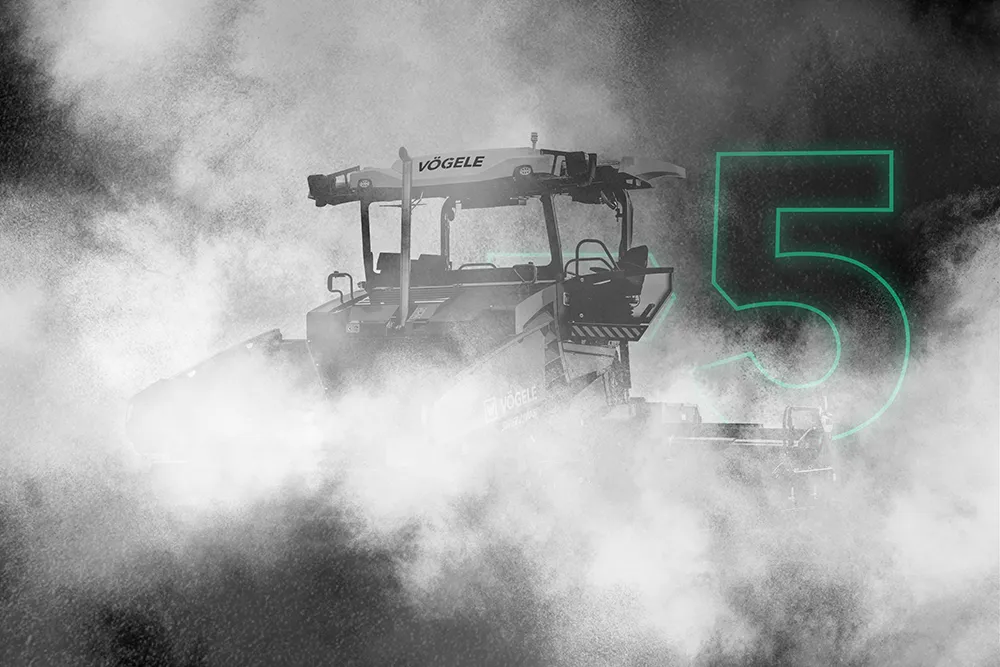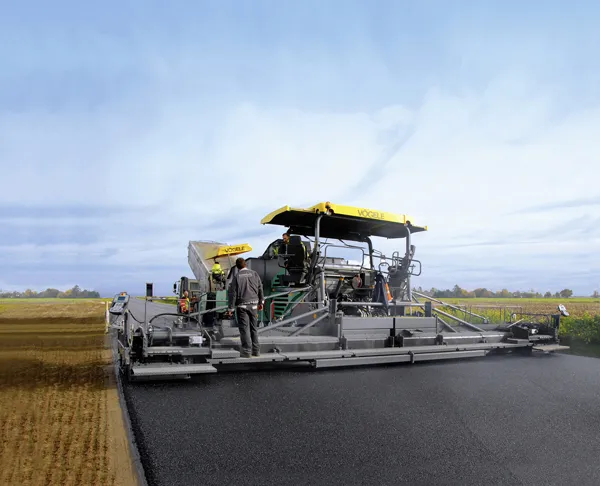Local contractor Galvão Engenharia opted to use an SP 850 slipform paver from Wirtgen as one of the key machines in the job to upgrade and improve the Anel Viário de Fortaleza. This important highway connects Fortaleza, located in the federal state of Ceará, with the busy port of Pecém.
The deepwater port in Pecém is some 60km from Fortaleza and since it was inaugurated in 2002, the city has become a primary port for exporting fruit products in refrigerated containers. Fuel and liquefied gas, fertilizer
May 15, 2015
Read time: 4 mins

A slipform paver from Wirtgen has been used to upgrade a motorway in Fortaleza, Brazil
Local contractor Galvão Engenharia opted to use an SP 850 slipform paver from2395 Wirtgen as one of the key machines in the job to upgrade and improve the Anel Viário de Fortaleza. This important highway connects Fortaleza, located in the federal state of Ceará, with the busy port of Pecém.
The deepwater port in Pecém is some 60km from Fortaleza and since it was inaugurated in 2002, the city has become a primary port for exporting fruit products in refrigerated containers. Fuel and liquefied gas, fertilizer and steel products are also shipped through the port. As a result, a large number of heavy goods vehicles use the road to and from Fortaleza, the capital of the federal state of Ceará and Brazil's fifth largest metropolis with a population of more than 3.3 million.
In order to manage this volume of heavy traffic, the port of Pecém has drawn up a logistics plan which also includes upgrading the Anel Viário de Fortaleza. It is hoped that this move will restore the smooth flow of traffic through the metropolis. Federal authorities have invested more than US$67.2 million (200 million Brazilian Reais) in the construction project, which is being carried out by the main contractor Galvão Engenharia.
The highway ring is to be widened and improved over a total length of 32.1km by June 2015. The roadway was originally 11m wide. When the work is completed, the traffic lanes in either direction will be 16.5m wide apiece. And measuring 33m across its entire width, the completed road will be three times as wide as before the work started.
Due to the high degree of stress from heavy goods vehicles, the mechanical stability required of the new pavement was a major factor in prompting Galvão Engenharia to opt for a concrete structure. An asphalt wearing course will then be laid over the concrete.
The firm decided that the longer lifespan of the concrete structure would suit the application better, particularly because of the large numbers of heavy trucks using the link. The firm calculated that this design, with a concrete structure and asphalt running surface, would be longer lasting and require less maintenance.
Galvão Engenharia opted for a Wirtgen slipform paver SP 850 to meet the project requirements. "After reviewing various concrete projects in Brazil, we decided that the Wirtgen slipform paver SP 850 had the best credentials for the tasks in hand," said Thiago Henrique Menezes, an engineer with Galvão Engenharia.
The SP 850 slipform paver can be used for an array of concrete pavement needs. Main applications for this model include the paving of urban roads, motorways, airport runways, slab track and hydraulically bound base courses. The hydraulically telescoping machine frame can be extended by 1.25m to the left and to the right, permitting the use of paving molds ranging from 2.5m to 5m in width. Working widths of up to 10m can be achieved by mounting additional extension elements. All components can be adjusted to the specified paving width.
Four separate hydraulically driven, steerable track units ensure manoeuvrability and traction. The range of equipment includes spreading auger or spreading plough, dowel bar inserter, central tie bar inserter, side bar tie inserter, finishing beam, super smoother and 3D interface.
The paving process is automated from the distribution of the concrete to its final smoothing. The concrete can be distributed by either a spreading auger or spreading plough. The heavy-duty paving mold then forms the concrete slab as the machine moves forward. Up to 24 curved high-frequency electric vibrators simultaneously ensure optimum compaction of the material. Dowel bars, central tie bars and side tie bars can be inserted into the freshly placed concrete. A hydraulically driven hoisting crane for dowel or tie bar packages makes the process even easier. Finally, the finishing beam and super smoother ensure a good finish.
Local contractor Galvão Engenharia opted to use an SP 850 slipform paver from
The deepwater port in Pecém is some 60km from Fortaleza and since it was inaugurated in 2002, the city has become a primary port for exporting fruit products in refrigerated containers. Fuel and liquefied gas, fertilizer and steel products are also shipped through the port. As a result, a large number of heavy goods vehicles use the road to and from Fortaleza, the capital of the federal state of Ceará and Brazil's fifth largest metropolis with a population of more than 3.3 million.
In order to manage this volume of heavy traffic, the port of Pecém has drawn up a logistics plan which also includes upgrading the Anel Viário de Fortaleza. It is hoped that this move will restore the smooth flow of traffic through the metropolis. Federal authorities have invested more than US$67.2 million (200 million Brazilian Reais) in the construction project, which is being carried out by the main contractor Galvão Engenharia.
The highway ring is to be widened and improved over a total length of 32.1km by June 2015. The roadway was originally 11m wide. When the work is completed, the traffic lanes in either direction will be 16.5m wide apiece. And measuring 33m across its entire width, the completed road will be three times as wide as before the work started.
Due to the high degree of stress from heavy goods vehicles, the mechanical stability required of the new pavement was a major factor in prompting Galvão Engenharia to opt for a concrete structure. An asphalt wearing course will then be laid over the concrete.
The firm decided that the longer lifespan of the concrete structure would suit the application better, particularly because of the large numbers of heavy trucks using the link. The firm calculated that this design, with a concrete structure and asphalt running surface, would be longer lasting and require less maintenance.
Galvão Engenharia opted for a Wirtgen slipform paver SP 850 to meet the project requirements. "After reviewing various concrete projects in Brazil, we decided that the Wirtgen slipform paver SP 850 had the best credentials for the tasks in hand," said Thiago Henrique Menezes, an engineer with Galvão Engenharia.
The SP 850 slipform paver can be used for an array of concrete pavement needs. Main applications for this model include the paving of urban roads, motorways, airport runways, slab track and hydraulically bound base courses. The hydraulically telescoping machine frame can be extended by 1.25m to the left and to the right, permitting the use of paving molds ranging from 2.5m to 5m in width. Working widths of up to 10m can be achieved by mounting additional extension elements. All components can be adjusted to the specified paving width.
Four separate hydraulically driven, steerable track units ensure manoeuvrability and traction. The range of equipment includes spreading auger or spreading plough, dowel bar inserter, central tie bar inserter, side bar tie inserter, finishing beam, super smoother and 3D interface.
The paving process is automated from the distribution of the concrete to its final smoothing. The concrete can be distributed by either a spreading auger or spreading plough. The heavy-duty paving mold then forms the concrete slab as the machine moves forward. Up to 24 curved high-frequency electric vibrators simultaneously ensure optimum compaction of the material. Dowel bars, central tie bars and side tie bars can be inserted into the freshly placed concrete. A hydraulically driven hoisting crane for dowel or tie bar packages makes the process even easier. Finally, the finishing beam and super smoother ensure a good finish.








